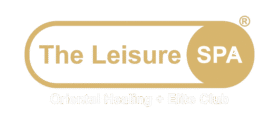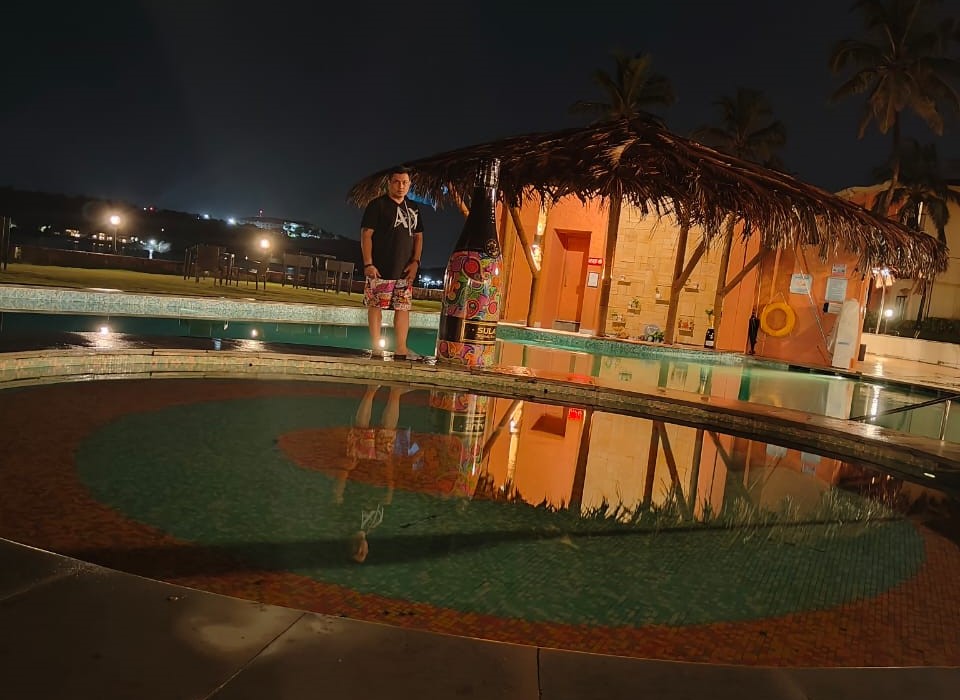140 total views, 2 views today
The Unchosen Gift: Why Your Greatest Responsibility is the Life You Inhabit
No one on earth holds the power to choose the initial blueprint of their existence. We are born into a specific time, a particular family, and a unique set of circumstances—a life we did not select, but one that is irrevocably ours. This unchosen life is, without a doubt, one of the most profound blessings we will ever receive. Yet, this very gift comes with an immense responsibility: the stewardship of our own well-being. The narrative that “life is tough” is not just a cliché; it is a universal truth. However, its difficulty is often not a matter of external cataclysms, but a direct consequence of how we manage our three most precious resources: our time, our relations, and our habits.
When these pillars are mishandled, the structure of our life begins to crumble. Stress becomes a constant companion, health deteriorates, and the vibrant blessing of life can feel like a burdensome chore. It is within this challenging landscape that the ancient art of spa therapy finds its modern, critical relevance. Far from being a mere luxury or an indulgence for the elite, spa therapy, as practiced in sanctuaries of wellness like The Leisure Spa, is a powerful, proactive discipline focused on one essential mission: restoring and preserving good health. It is a conscious act of honoring the life we were given by giving back to ourselves the time and care we so desperately need to stay happy and healthy.
This philosophy of a balanced life is not a theoretical concept; it is a lived reality. It is a practice that, once integrated, allows one to lead life differently—with more resilience, joy, and purpose.
The Modern Malady: The Slow Erosion of Self
Before we can understand the cure, we must diagnose the illness. The contemporary world, for all its advancements, has engineered an environment of constant attrition on the human spirit and body.
-
The Time Famine: We are chronically time-poor. Tethered to digital devices, we blur the lines between work and rest, leading to a state of perpetual partial attention. We never truly are where we are. This relentless pace steals from us the moments of quiet reflection necessary for mental equilibrium.
-
The Fragmentation of Relations: In an age of hyper-connectivity, genuine connection is often scarce. Superficial digital interactions replace deep, nourishing conversations. Relationships, which should be a source of strength, can become additional stressors without intentional cultivation and presence.
-
The Tyranny of Poor Habits: Sedentary lifestyles, processed foods, and inadequate sleep have become the norm for many. These habits are not formed out of malice but from exhaustion and a lack of conscious self-care. They are slow-acting poins, undermining our physical vitality and mental clarity.
This trifecta creates a state of chronic stress, which the American Psychological Association identifies as a key contributor to the six leading causes of death: heart disease, cancer, lung ailments, accidents, cirrhosis of the liver, and suicide. Stress is not just a feeling; it is a physiological event that, when sustained, wreaks havoc on our systems.
The Spa as a Sanctuary: More Than a Pampering, A Prescription
This is where the paradigm of the modern spa must shift. The Leisure Spa, and those like it, are not simply oases of pampering; they are clinics for preventive care. They are dedicated spaces designed to interrupt the cycle of self-neglect and provide the tools for restoration. The core offerings—preventive care, cleansing, baths, and de-stress therapies—are not random services but a targeted, holistic system for reclaiming one’s health.
Let’s delve into how each of these pillars functions as a vital component of a health-restorative strategy.
1. Preventive Care: The Art of Fortifying the Foundation
Preventive care is the cornerstone of the spa philosophy. It operates on the timeless wisdom that it is better to build a strong levee than to frantically bail out a flooded town. In a medical context, prevention might mean vaccinations and check-ups. In the spa context, it means proactively maintaining the body’s systems to prevent the onset of stress-related illness and burnout.
-
Regular Massage Therapy: Beyond mere relaxation, modalities like Swedish massage, deep tissue, and sports massage are powerful preventive tools. They improve circulation, facilitating the delivery of oxygen and nutrients to cells while flushing out metabolic waste. They enhance lymphatic drainage, bolstering the immune system. They break down muscular adhesions, preventing chronic pain and improving posture, which in turn prevents joint degeneration. A monthly massage is not a splurge; it is maintenance for the most complex machine you will ever own—your body.
-
Consultative Wellness: A true wellness spa offers consultations with therapists and nutritionists who can identify potential imbalances before they become pathologies. They can recommend stretches for your specific postural habits, dietary tweaks for your energy slumps, and herbal teas for your sleep patterns. This is personalized, proactive health management.
2. Cleaning: The Internal and External Purification
The concept of “cleaning” in a spa transcends the simple act of washing. It is a holistic purification of both the physical body and the cluttered mind.
-
Body Scrubs and Wraps: Treatments like salt or sugar scrubs do more than just leave skin feeling soft. They perform vital exfoliation, sloughing off dead skin cells to reveal healthier skin, improve skin tone and texture, and stimulate renewed cell regeneration. Detoxifying wraps, often using elements like clay or seaweed, draw out impurities from the skin, reduce fluid retention, and promote a profound sense of lightness and purity.
-
Digital Detox and Mental Decluttering: Perhaps the most profound “cleaning” a spa offers is the implicit digital detox. In a space designed for tranquility, the constant pings of notifications fade away. This creates a vacuum, which is then filled by silence, calming music, or the sound of water. This mental decluttering is as essential as physical cleansing. It allows the overstimulated nervous system to reset, clearing the cognitive pathways for clearer, calmer thought.
3. Bath Therapies: The Restorative Power of Water
Hydrotherapy is one of the oldest therapeutic practices known to humankind, and for good reason. Water, in its different temperatures and states, has a profound regulatory effect on the body.
-
Thermal Therapy: The contrast between hot and cold water is a masterclass in circulatory gymnastics. A session in a steam room or sauna causes vasodilation—the widening of blood vessels—increasing heart rate and circulation. Following this with a cold plunge or shower causes vasoconstriction, forcing blood back to the core. This process pumps the circulatory and lymphatic systems, flushing out toxins, reducing inflammation, and strengthening the immune response. It is a workout for the vascular system.
-
Immersion and Buoyancy: Simply floating in a warm bath, especially one infused with Epsom salts (magnesium sulfate), can alleviate muscle pain and reduce stress. The buoyancy relieves pressure on joints and muscles, while the warmth soothes the nervous system. This is a return to a primordial state of weightlessness, offering profound physical and mental relief.
4. De-stress Therapies: Recalibrating the Nervous System
At the heart of most modern ailments lies an overactive sympathetic nervous system—the “fight-or-flight” response. De-stress therapies are specifically designed to activate its counterpart: the parasympathetic nervous system, or the “rest-and-digest” state.
-
Aromatherapy: The power of scent is directly linked to the limbic system, the brain’s emotional center. Essential oils like lavender, chamomile, and bergamot are not just pleasant smells; they are bioactive compounds that can signal the brain to reduce cortisol (the stress hormone) levels, promote relaxation, and improve mood. When integrated into massages or diffused in the air, they become a potent tool for emotional regulation.
-
Sound Therapy and Meditation: Guided meditation sessions or treatments incorporating singing bowls use sound frequency to entrain brainwaves into slower, more relaxed states (Alpha and Theta waves). This can halt the cycle of anxious thoughts and induce a state of deep mental peace that is often elusive in daily life.
-
The Ambiance of Stillness: The very environment of a spa—the soft lighting, the tranquil music, the absence of demands—is a de-stress therapy in itself. It is a permission slip to simply be, without doing. This practiced stillness is a skill that, once learned, can be carried back into the chaos of everyday life.
The Ripple Effect: From the Treatment Room to the World
The benefits of a dedicated spa ritual are not confined to the hours spent within its walls. The true value lies in the ripple effect it creates in every aspect of your life.
-
Enhanced Physical Vitality: With reduced pain, improved sleep, and a detoxified system, you have more energy. You are more likely to choose nutritious food, engage in enjoyable physical activity, and show up as a more vibrant version of yourself for your work and your loved ones.
-
Sharpened Mental Clarity: A decluttered, de-stressed mind is a focused and creative mind. Problems that seemed insurmountable often find solutions in a state of calm. Decision-making improves, and productivity soars, not through frantic effort, but through clear-headed intention.
-
Emotional Resilience: By regularly practicing self-care, you build a buffer against the stresses of life. You are less reactive, more patient, and better equipped to handle interpersonal challenges. You stop pouring from an empty cup and start relating to others from a place of abundance.
-
The Revaluation of Time and Habits: The experience of profound well-being becomes a powerful motivator. You begin to naturally re-evaluate how you spend your time and what habits you cultivate. You start to protect your sleep, set boundaries, and nurture relationships that are truly nourishing, because you have tasted the alternative and found it wanting.
Leading a Different Life: The Balanced Life as a Conscious Choice
To live a balanced life is to lead life differently. It is to understand that self-care is not selfish; it is the foundation upon which all other care is built. It is the recognition that you cannot give what you do not have. By consistently giving time and care to yourself, you are not taking away from others; you are ensuring that you have a sustainable, healthy, and joyful self to give.
Integrating the spa philosophy does not require a weekly retreat (though that is wonderful if possible). It means carving out non-negotiable time for self-care, whether that’s a 20-minute bath with Epsom salts, a monthly massage, a daily 10-minute meditation, or a quarterly digital detox weekend. It is about making your well-being a priority on your to-do list, not an afterthought.
Conclusion: Honoring the Blessing
The life you were given is a unique, unchosen, and irreplaceable blessing. It is tuff, yes, but its texture and quality are, in large part, shaped by your hands. By mishandling your time, relations, and habits, you risk squandering this gift. By embracing a philosophy of proactive wellness—where practices like those found at The Leisure Spa are seen as essential preventive medicine—you actively honor it.
You begin to treat your body as a temple, not a tool. You nurture your mind as a garden, not a battlefield. In doing so, you transform the unchosen gift of life into a consciously crafted masterpiece of health, happiness, and balance. This is the ultimate power we do hold: the power to choose how we live within the life we were given. Make the choice to care for it, for in that care, you discover the true depth of the blessing itself.

